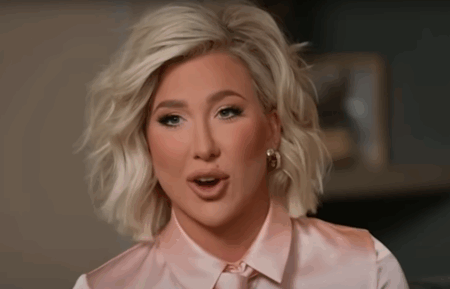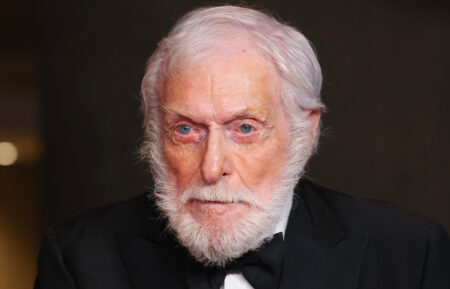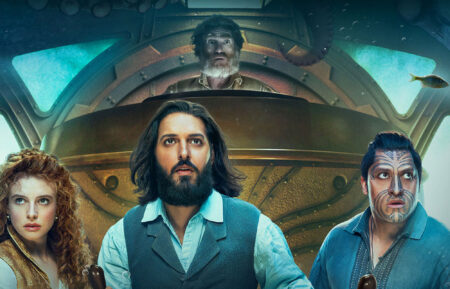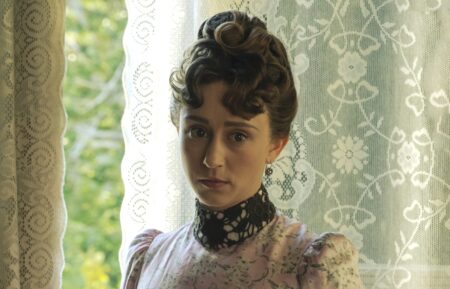What the ‘Killing Eve’ Series Finale Did Right — And What It Did Wrong
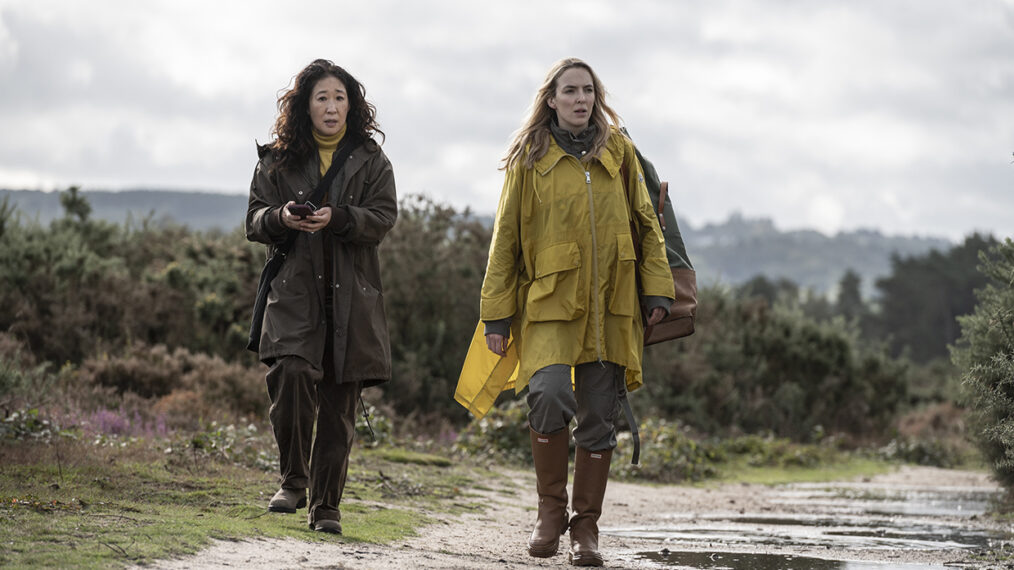
Opinion
[WARNING: The following contains MAJOR spoilers for Killing Eve Season 4 Episode 8, “Hello, Losers!”]
If you polled viewers of Killing Eve’s final episode on their immediate reactions to the ending, the result with the most votes would be “sitting slack-jawed, frozen in shock.” And for good reason.
Whatever your thoughts about Season 4 — whether you felt it was an improvement over Season 3 or that it was scattered like glass shards on pavement — “Hello, Losers!” seems destined to spark strong reactions. Here’s what we liked, and what we didn’t like, about Killing Eve’s final hour.
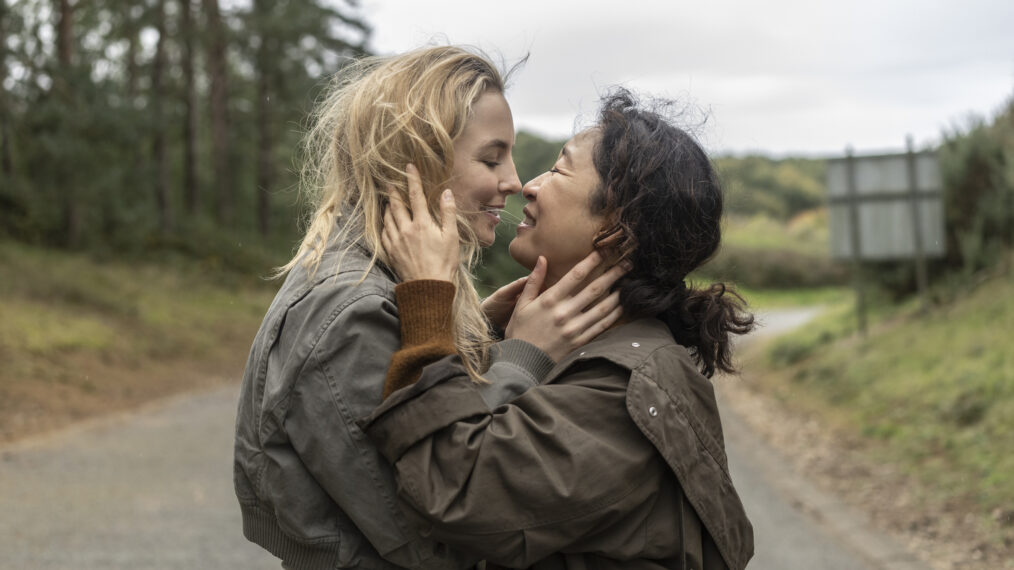
David Emery/BBCA
The Good Stuff
At. Long. Last. After four whole seasons of yearning eye contact, gently brushing hands and, uh, attempted murder, Villanelle (Jodie Comer) and Eve (Sandra Oh) did it. They kissed. And what a kiss it was. Everything from Eve tenderly brushing the assassin’s hair out of her eyes to both of the women grinning and giggling between passionate smooches was like clicking the last piece of a puzzle into place; it was triumphant, sweet, and for viewers who’d been clamoring for it, a thing of absolute beauty. The kiss was a perfect culmination of the tension between two characters who always knew on some level that they wanted each other, but it took four seasons for them to accept how badly they needed each other. Kudos to Oh and Comer for their elated, exhilarated portrayal of the moment.
Really, the ‘Villaneve’ dynamic might be at its best in this episode since Season 1’s “God, I’m Tired.” For the first time in the show’s run Villanelle and Eve’s unconventional romantic bond is explored beyond mutual obsession, and those moments are cathartic. They joke with each other about putting mustard on fries. Eve tries to toss candies into V’s mouth as she drives. They lie together in a sleeping bag, pondering their scars and whether they want to steal a camper-van. Whether or not a genuine relationship between them would’ve been possible, “Hello, Losers!” gave fans a glimpse of what domestic ‘Villaneve’ might’ve looked like. It’s surprisingly heartwarming.
Aside from Villanelle and Eve, “Hello, Losers!” has a few bright moments regarding Carolyn (Fiona Shaw) and especially Pam (Anjana Vasan), who might’ve been an excellent character had she had another season to grow. Pam’s rebuttal of the glamorous, sexy, intrigue-packed assassin life highlights how different she is from Villanelle and Eve. Unlike them, she chooses to walk away from Carolyn’s job offer and, presumably, return to a normal, murder-free existence. Not just anyone can say “no” to Ms. Martens, but Pam does. That’s a move worth respecting.
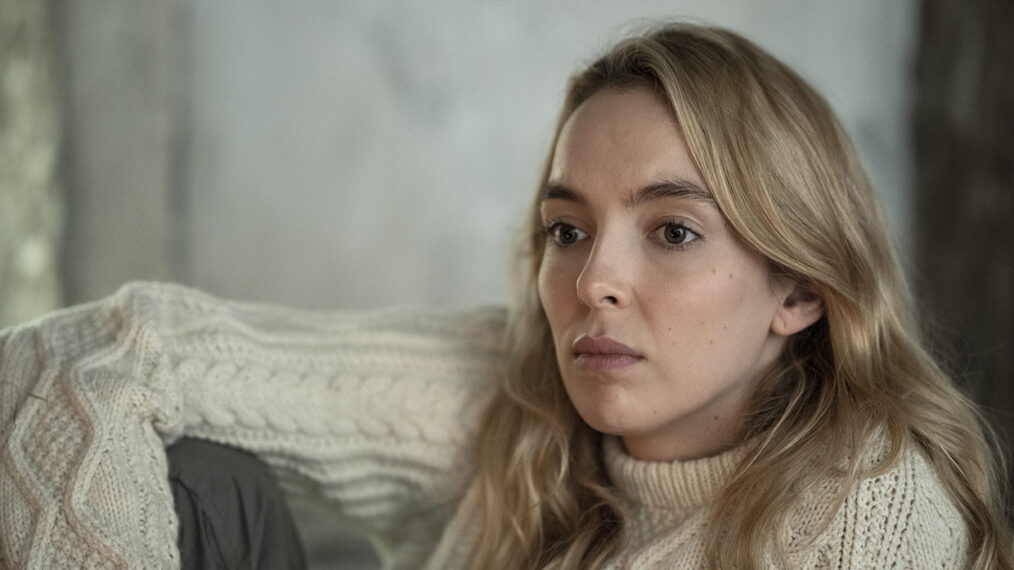
David Emery/BBCA`
That One Unfortunate Trope
It’s too bad that there’s more bad than good when it comes to Eve’s final hour. First and foremost, Villanelle’s death. Yes, Villanelle has killed a lot of people. Yes, despite her best efforts, she didn’t seem to be able to smother the part of herself that thrilled at violence. Did she earn survival? An argument could be made either way.
But given how tightly compressed the events of the last episode were, V’s end falls into an unfortunate trope regarding LGBTQ+ characters in media: “bury your gays.” The fact that Villanelle had just found contentment and love with Eve hours before being shot falls directly into the wearying narrative in fiction that LGBTQ+ women cannot have happy endings, or that their lives are disposable. Another prominent example is The 100’s Commander Lexa (Alycia Debnam-Carey), who, like V, died after she found romantic love. Admittedly, V’s case is a little more complex — Lexa was a noble and powerful leader, rather than a psychopathic assassin — but the parallels are unmistakable.
To contrast, The Haunting of Bly Manor also features a tragic love story between two women: Jaime (Amelia Eve) and Dani (Victoria Pedretti). While yes, it’s another LGBTQ+ romance that ends in death and could technically be considered “bury your gays,” what separates Dani’s death from Lexa’s and Villanelle’s is that her end doesn’t feel like a “punishment” for being in a non-straight relationship. It doesn’t sting of shock value. She and Jaime are able to spend many happy years together before she drowns, which she chooses as a means of protecting Jaime from the malevolent ghost that partly inhabits her body.
The conclusion of Jaime’s story is heartbreaking but thoughtful, intended to make a viewer realize falling in love is also an acceptance of the heartbreak that comes with loss. What does Villanelle’s death say? Don’t… be an assassin? Bullets are deadlier underwater in fiction than in reality? (Those shots shouldn’t have killed her.) Killing Eve certainly didn’t have to end with V surviving, or with Villanelle and Eve walking off into the sunset. But it could’ve taken care to give Villanelle’s story a resolution with more significance, rather than a shocking conclusion with less than three minutes in the episode.
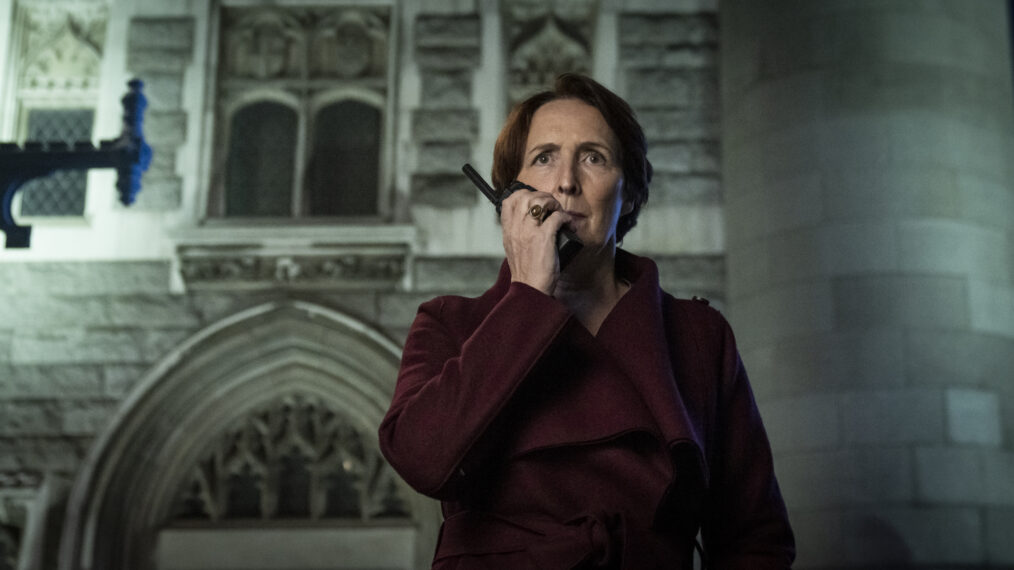
The Other Not-So-Good Stuff
Even setting Villanelle’s controversial end aside, “Hello, Losers!” still falls apart. Carolyn’s behind the final attack on Eve and Villanelle, but it’s never clear why — theories range from “she ordered Villanelle killed so she could return to MI6” to “wait, did Villanelle kill Kenny?” While using violence to get what she wants isn’t out of character for her, it’s frustrating that her motivations are never revealed. Also never revealed, despite being teased for two whole seasons: The identity of Kenny’s (Sean Delaney) killer. Did he really just fall off the roof of the Bitter Pill building? That investigation was Carolyn’s sole driving force, but it’s never fully resolved. There might’ve been something about it in Konstantin’s (Kim Bodnia) letter, but since viewers are never told what it said, it’s all still unclear.
Also never resolved: The identities of the people in The Twelve. Taking down The Twelve had been Eve’s goal for some time, but when it happens, the faces of these people are never shown… and Villanelle simply waltzes into the room and kills them all. There’s a sense that Killing Eve ran out of time to delve deeply into who these people are and why they do what they do, and all “Hello, Losers!” could do was eliminate them without fanfare so it could sprint to its final deadly moments.
And of those final moments, what about Eve? While she survives, her ending isn’t a happy one, either; she resurfaces from the Thames screaming in horror, having helplessly watched her soulmate Villanelle die in front of her. It’s an inconclusively gray final moment for a character who’d comfortably slipped farther and farther into darkness with each passing season. Does she go back to her old life? Does she choose to follow the part of her that felt “wide awake” in being close to danger? What did the title, “Killing Eve,” signify in relation to her character arc?
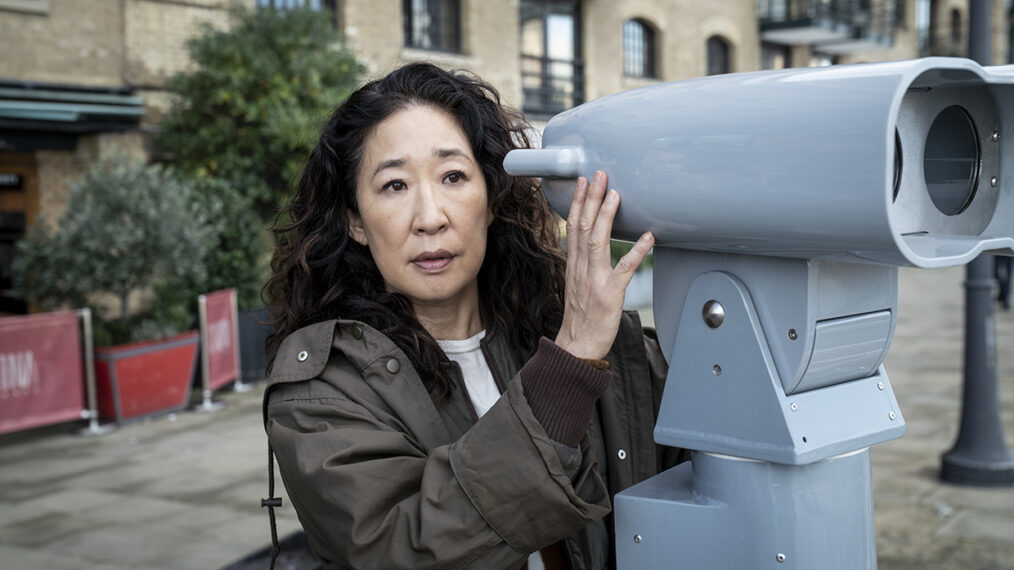
Olly Courtney/BBCA
Sometimes, it’s hard not to feel Killing Eve shouldn’t have been a limited series, a one-and-done program that went out on a high note. That initial season’s mysteries felt deliberate, rather than like a byproduct of a reduced season count, and it gracefully sidestepped tired tropes. But there are things to be grateful to Killing Eve for, setting aside the show’s final minutes. Villanelle was a phenomenal character (with phenomenal fashion sense, which was tragically absent in the final season). Eve, Villanelle and Carolyn are messy, compelling and unique in a media landscape that doesn’t always view women as multidimensional. The cinematography, especially in earlier seasons, is a delight. We’ll always have that extraordinary “rat drinking from a can of Coke” line.
If Season 4 had managed to stick the landing, perhaps many of Killing Eve’s missteps over the years could’ve been forgiven. As it is, its legacy is tarnished by its unfortunate final minutes — and in re-watches, plenty of fans will likely press the pause button before the bullets start to fly.
From TV Guide Magazine
How 'Countdown' Recruited Jensen Ackles to Go Full 'Die Hard'
Countdown boss Derek Haas talks creating the character around Ackles, and the cast teases the “Avengers”-like team of the crime thriller. Read the story now on TV Insider.




